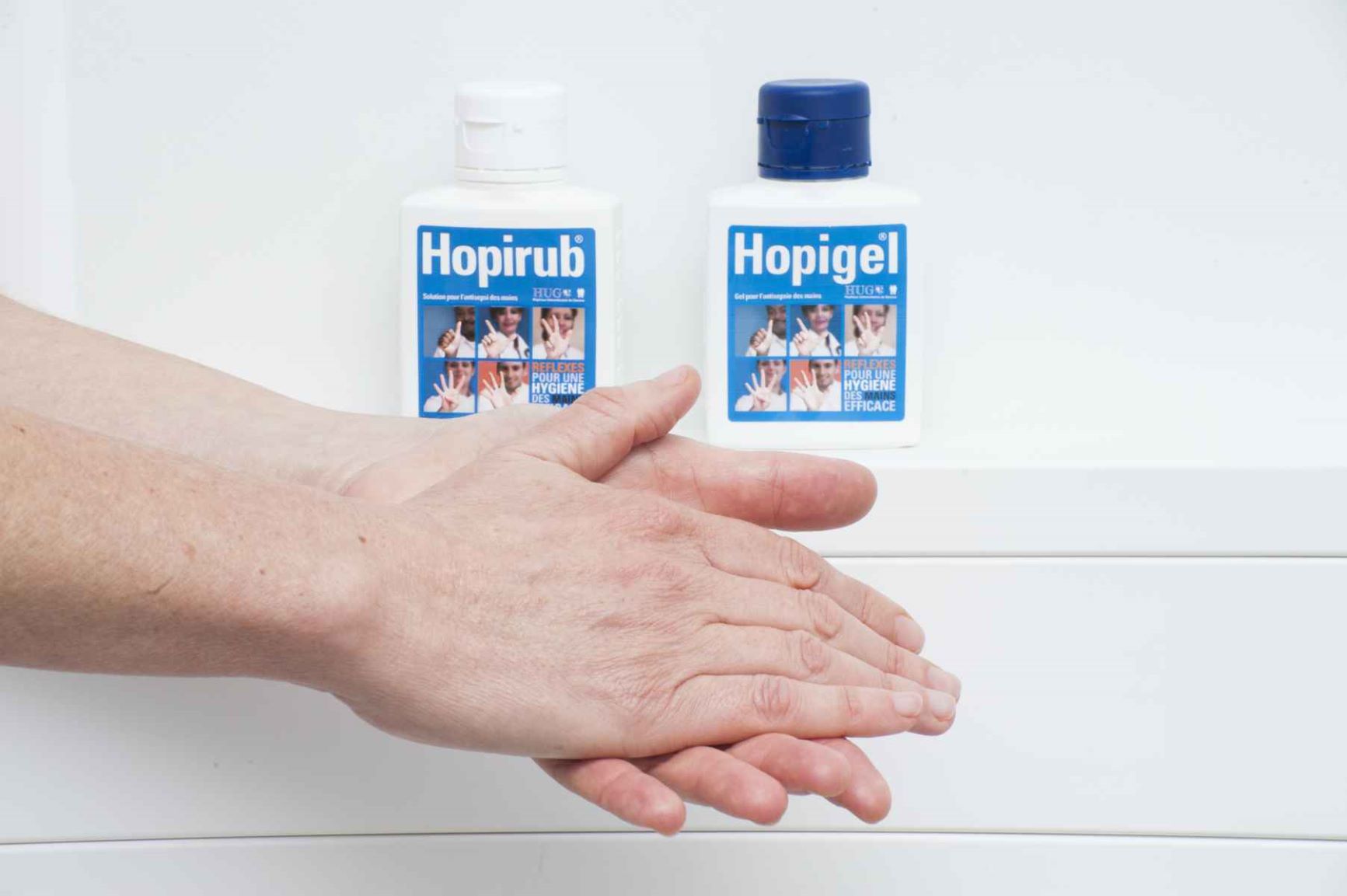COVID-19: Dr Clean Hands
Hydroalcoholic gel is a much sought-after product these days. It was developed by Dr Didier Pittet, infectious disease expert and director of the Infection Control Programme of Geneva University Hospitals (HUG). A pioneer in hospital hygiene, Dr Pittet developed, together with HUG pharmacist William Griffiths, this hydroalcoholic solution which has revolutionised hand disinfection methods in medical settings. Rubbing one's hands with this product is a very simple step that has been adopted worldwide and saves 8 million lives every year.
There was nothing in Dr Pittet's early background to suggest that he would one day make a career in medicine. Born in Geneva in 1957 and brought up in the Christian faith, he could have chosen to become a man of the cloth. But he laid aside thoughts of the ministry and chose a white coat instead. While still in his teens, he grew close to the family doctor, who would become his mentor and encourage him to choose another calling – not to save souls but to heal the sick.
Dr Pittet is now the director of the Infection Control Programme and WHO Collaborating Centre on Patient Safety at the HUG. He has co-authored over 500 scientific publications and has received several national and international awards in his field. In 1998 he was ranked among the top five most influential scientists worldwide. He has taught at some of the world's most prestigious medical institutions.

Dr Clean Hands
Dr Pittet did more than anyone to popularise the slogan 'Clean Hands Save Lives' in the wake of the 2009 H1N1 flu pandemic. He demonstrated that disinfecting one's hands with a hydroalcoholic gel – the chemical formula was developed by HUG pharmacist William Griffiths – is more effective than washing them with soap. This scientific breakthrough, which makes proper hand hygiene possible in poor countries where running water is scarce, is known as the 'Geneva model' in the medical field. The principle is simple: keep hydroalcoholic gel within easy reach of medical staff at all times in patients' rooms and hospital corridors so they can disinfect their hands during and after contact with patients. They can even carry bottles of hydroalcoholic gel in the pockets of their white coats.
The conventional hand-washing method requires you to walk to a washbasin, wash thoroughly, rinse and then dry your hands. It is a time-consuming process, especially because medical staff are expected to wash their hands several times an hour. Keeping hands germ-free with hydroalcoholic gel is not only faster (it takes about 20 seconds) and more convenient than washing them with soap but also has another major advantage: it reduces healthcare-associated infections (hospital infections).
Dr Pittet introduced his method of combating healthcare-associated infections – which affect around 70,000 people in Switzerland annually – at the HUG in the 1990s in collaboration with the World Health Organization. It now saves 8 million lives a year worldwide. For services to the prevention of healthcare-associated infections in the UK, Dr Pittet was conferred the title of Commander of the Order of the British Empire by Queen Elizabeth II – the highest rank of that order available to non-British nationals. The British crown had not granted a title to a Swiss national in over 400 years.

The gift of giving
Money is a limited resource but people willing to help each other are not.
Convincing the medical and scientific community of the importance of using hydroalcoholic gel to ensure effective hand hygiene was not easy: Dr Pittet faced considerable resistance. He notes that imposing the use of hydroalcoholic gel is much less of a challenge than getting people to internalise the habit to keep their hands germ-free. 2005 was a turning point. The WHO entrusted Dr Pittet with the launch of the 'Clean Care is Safer Care' programme for patient safety, which gave a global impetus to efforts to promote the use of hydro-alcoholic solution to ensure effective hand hygiene.
Dr Pittet's campaign led him to cross swords with pharmaceutical companies which resisted his call for hydroalcoholic gel at affordable prices. He is more interested in public health results than in profits and has not earned a penny from the product he co-developed. He relinquished all intellectual property rights and gave the chemical formula to the WHO "so it can be produced in a kitchen lab". Making the formula freely available was the only reward he was interested in.
Honours cannot be bought: they are earned by giving of yourself.
Based on an article by Dejan Nikolic published in the Swiss newspaper Le Temps in April 2014 (in French).




